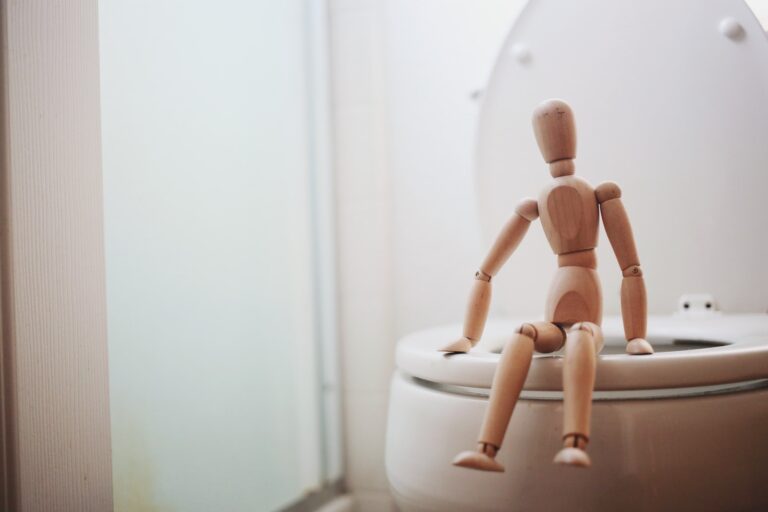The feeling of needing to pee during sex can be an absolute buzzkill and can lead to an overall reduction in sexual pleasure. Thankfully, there is no need to live with this issue forever as there are a number of things you can try right away to address the problem.
Causes
For many women, achieving orgasms comes with an unfortunate side effect – urine leakage. It could be caused by sexual penetration, which puts pressure on the bladder and urethra; or by stimulation of the Skene’s glands, located on both sides of the urethra. It can also be a result of an overactive bladder. It is recommended that people empty their bladder before engaging in sexual activity, and it may be helpful to experiment with different positions to see what works best for you.
Another possible cause is that the clitoris, which is the focus of sexual pleasure for women, is located about a finger width above the opening of the urethra. This can lead to confusion between signals sent from the clitoris and those sent from the bladder, which causes urinary leakage.
A weakened pelvic floor, which can be caused by childbirth, surgery, or long-standing medical conditions, may also increase the likelihood of urinary leakage during sexual activity. It is also important to consume a sufficient amount of water and avoid drinking alcohol and caffeine.
Finally, urine incontinence that occurs at the same time as sex can be a symptom of a urinary tract infection (UTI). If you have a UTI and experience peeing during sex along with a burning sensation, blood in your urine, back pain, a foul smell, or fever, then it is recommended that you contact your doctor immediately.
Symptoms
Feeling like you need to pee during sex can be an indication that ejaculation is about to occur. This sensation can be caused by a number of things, including sexual penetration that places pressure on the bladder or urethra; stimulation of the paraurethral glands in the urethral sponge (also called Skene’s glands), which can cause them to release fluid during orgasm and mimic the feeling of urination; having an empty bladder; weak pelvic floor muscles; having a urinary tract infection (UTI); or consuming too much caffeine or alcohol.
Urination during sex is most common in women and those with vaginas because of how the anatomy works. The urethra is in close proximity to the penis and vagina, and it’s easy for germs from the vagina to enter the urethra when lubrication is used during sex. This can lead to a urinary tract infection, which is why it’s important to pee after every sex session.
For men, urinary leakage during sex is rare because of the prostate gland, which blocks urine from entering the urethra when they have an erection. However, those who have had their prostate removed due to cancer may experience incontinence as a result. They may also have a condition called urge incontinence, which is when the muscles of the bladder suddenly contract and eject urine without being able to control it.
Treatment
The good news is that urinary leakage during sex is often treatable. Treatment options range from lifestyle changes all the way through to surgery in more serious cases. You can significantly reduce how often you pee during sex by practising pelvic floor muscle exercises (Kegel exercises), maintaining a healthy weight, avoiding bladder irritants like caffeine and alcohol, and using the bathroom right before sexual activity.
If you feel the urge to pee during sex, it is likely due to a condition called “urge incontinence.” Urge incontinence causes your bladder muscles to spasm, causing urine leakage. This condition can be caused by a number of things, including pregnancy, childbirth, or menopause; stress; a history of bladder surgery; chronic coughing; smoking; and a high intake of fluids.
For some people, the feeling of needing to pee during sex is actually arousing. This is because the build-up to orgasm can often mimic the sensation of needing to pee. The arousal is due to the heightened blood flow and pressure in the genital area as the body prepares for vaginal ejaculation.
However, for those who are not arouse by the feeling of needing to pee, it is important to seek medical advice. Frequent and persistent leaking can be a sign of an underlying health problem such as a urinary tract infection (UTI). Seeking medical advice will help you find the best possible treatment.
Prevention
As we know, orgasms are extremely pleasurable, but many women experience another sensation during sexual activity that can be a total bummer – the feeling of needing to pee. Known as urinary incontinence during sexual intercourse or coital urinary incontinence, it can have serious consequences for both the physical and emotional intimacy of a relationship. This is because it can lead to fewer orgasms, a lack of satisfaction with sexual intercourse, or even abandonment of the activity altogether.
Urge incontinence can be caused by a number of factors, including weak pelvic floor muscles, hormone changes (particularly during pregnancy and menopause), certain medical conditions like diabetes or multiple sclerosis, and a lack of exercise. It can also be a symptom of a bladder infection or urinary tract (UTI) that needs to be treated.
It’s also important to make sure you pee before sex to avoid any accidental squirting, which can be confused with female ejaculation or just the natural fluid that happens during orgasm. Using lubricant can also help reduce the risk of urine leakage, but remember that it isn’t a substitute for a good quality partner or regular pelvic floor muscle exercises. If you’re concerned about your urinary incontinence, speak to a healthcare professional for advice and treatment. You’ll be surprised to learn that there are solutions that won’t leave you kissing your sex life goodbye!
See Also:






